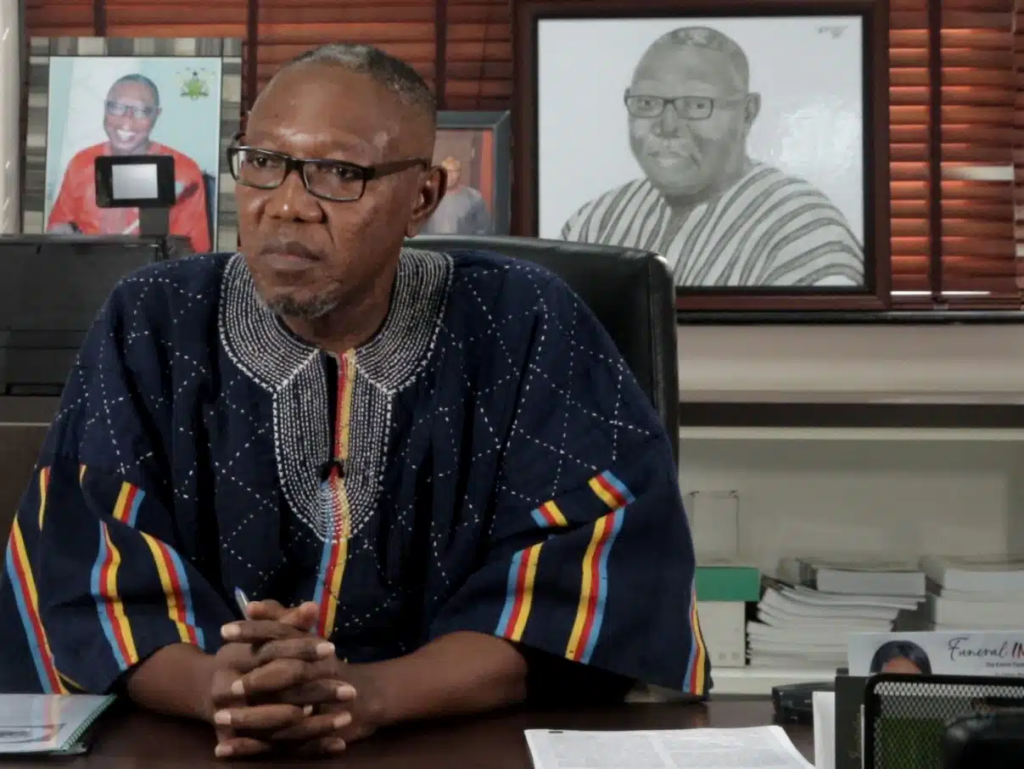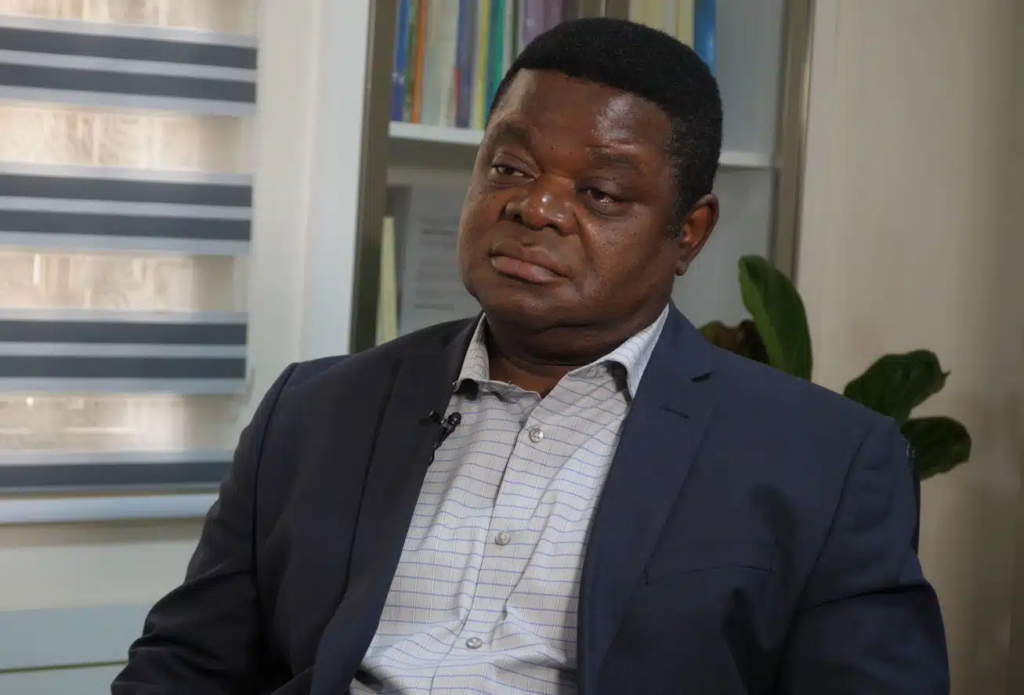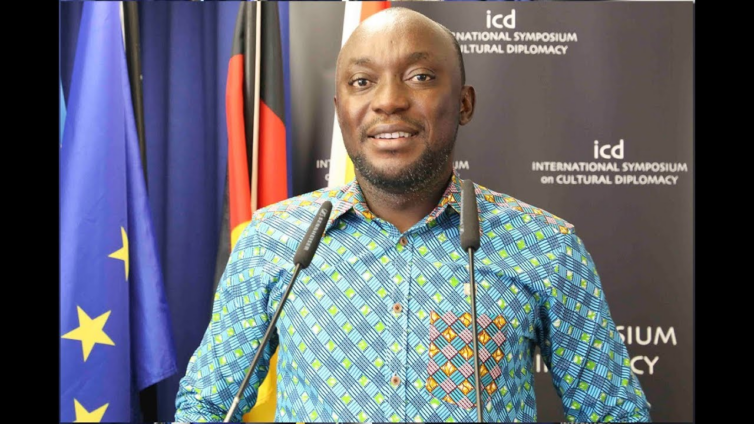She was born to a farmer and a petty trader. Money was always hard to come by. However, her disadvantaged background was no hindrance to her quest for academic excellence. After obtaining an undergraduate degree with First-Class honours, Franklina Mensah (not her real name) knew better than to rest on her laurels.
The next step on her academic journey required funding she was well aware her parents could not afford. But with her stellar academic achievements, she was hopeful that support would not be difficult to come by. At least that was what Franklina thought when she submitted her application to the government-run Scholarship Secretariat, seeking funding for a master’s degree programme in the United Kingdom (UK).
If the scholarship was going to be awarded on merit, she felt she stood a very good chance. Her sense of optimism soared higher when she received plaudits from the interview panel, who were full of praise for her excellent proposal and academic credentials.
But optimism gradually fizzled into heartbreak.
Several weeks had gone by since the interview. She should be preparing to travel to the UK to start her new academic journey. But she hadn’t heard from the Scholarship Secretariat. She was getting anxious and the only way to ease her anxiety was to go to the Secretariat to find out what could be causing the delay. Maybe some clerical or administrative error was to blame. At the offices of the Scholarship Secretariat, Franklina met an official whose name she couldn’t recall. What ensued left her stunned.
“I mentioned my name, and he said, ‘Your name was on the list but there is so much protocol they had to take people out.’”
The official claimed requests come from highly influential offices including that of the President, Parliament and ministers “for this same scholarship.”
“You should understand that people will have to go off the list,” he told Frankina.
In other words, she had been shortlisted for the scholarship but a protocol list from some higher office or authority had forced her name to be taken off the shortlist.
“I was dumbfounded,” Franklina said told The Fourth Estate.
As luck would have it, however, or perhaps as a testament to her perseverance and the quality of her graduate proposal, she obtained a different scholarship which enabled her to pursue her studies that same year – and in the UK as planned.
Franklina’s story is just an example of how what is supposed to be a merit-based scholarship scheme to help brilliant but needy Ghanaians achieve their academic dreams has gradually and cruelly been rigged in favour of those who are connected to the political elite.
What has been your experience with the Ghana Scholarship Secretariat?
— The Fourth Estate (@fourthestategh) March 28, 2024
Request for scholarship data
After hearing numerous complaints from people like Franklina, The Fourth Estate asked in March 2021 for data from the Scholarship Secretariat on those who have been awarded scholarships in 2019 and 2020.
The secretariat initially refused to grant the request, claiming the data was confidential. However, the Right to Information (RTI) Commission ordered that personal information should be redacted and the data released. The Commission based its ruling on the premise that the scholarships were funded with public money.
The Scholarship Secretariat’s response to the RTI request showed that it had spent GH¢237.5 million and GH¢200 million in 2019 and 2020, respectively, covering both foreign and local scholarships.

The Scholarship Secretariat, an agency under the Office of the President, was established in 1960 with the primary purpose of providing local and foreign scholarships to academically gifted but financially needy students.
Following the country’s liberation from colonial rule, the Nkrumah administration set up scholarship programmes as a means to incentivise and attract top talents to bolster the nation’s workforce by assisting citizens who lacked the financial means to fund their education.
In recent years, however, the secretariat has faced criticism for allegedly perpetuating patronage, often overlooking deserving applicants in favour of those with political and high society connections.
A major source of funding for the Scholarship Secretariat is GETFund. Section 2.2(b) of the GETFund Act requires the Scholarship Secretariat to allocate funds to support “gifted but needy students for studies in the second cycle and accredited tertiary institutions in Ghana.”
The Secretariat administers bilateral scholarships, funded by foreign countries, and non-bilateral scholarships, which are financed by the Ghanaian taxpayer. Non-bilateral scholarships include funding for both local and foreign categories.

Scholarship for the well-connected and not-so needy
The Fourth Estate asked for data covering 2019-2020 because the Auditor-General had released a report (covering 2009-2018) in which it highlighted how deserving but financially disadvantaged students were sidelined, while scholarships were granted to the well-connected.
Our investigations revealed a similar trend—the funnelling of scholarship funds to influential people as well as children, relatives and associates of powerful figures.
The Fourth Estate analysed the data specifically focusing on scholarships funded by the government of Ghana. This analysis included a breakdown of the expenditures on scholarship recipients in various countries, details of the programmes pursued by the beneficiaries and their backgrounds.
From our analysis, in 2019-2020, the Scholarship Secretariat spent at least £291,480, $146,502 (USD) and $7,685 (CAD) respectively on influential individuals and the associates of the political elite.
Notably, the founder and chief executive of a private hospital in Accra who recently contested and lost in the NPP parliamentary primaries in the Ashanti Region received $50,031 for his master’s in public administration at Harvard University in the United States.
An NPP constituency executive from the Eastern Region was awarded multiple scholarships for master’s programmes, totalling £57,210.
An NPP youth activist and a management member of the National Service Scheme (NSS) funded her Master’s degree studies with a scholarship award worth £18,450.
One of the most worrying details from the information we received concerned a special assistant to the wife of the Vice President, Samira Bawumia. Some £17,355 was paid for the special assistant to attend a university in the United Kingdom but he never stepped on campus and dropped out of the programme after attending only a few online classes from Ghana.
There is also the case of the family member of President Nana Akufo-Addo and former Finance Minister, Ken Ofori-Atta whose path to law school in the United Kingdom was cleared with a £16,740 scholarship.
A UK branch executive of the NPP, who has been living in that country since 2008, also received £28,380 for a Master’s Programme in Law.
Two top diplomats are also on the list of beneficiaries of a scholarship meant to empower the underprivileged, according to information on the Scholarship Secretariat’s own website.
Children of the political & social elite
The data revealed that it wasn’t just the politically connected who obtained government scholarships. Children of Ghana’s political and social elite also received scholarships, leveraging influence and privilege to access educational opportunities intended for brilliant but needy Ghanaians.
For example, the daughter of a former Inspector General of Police received £27,480 for a first-degree programme in the United Kingdom.
In that same year, the daughter of a prominent actress received $41,026 for a pre-medicine programme in the United States.
The children of two former Members of Parliament received £19,130 and $36,675 for a first degree in law and a pre-medicine programme respectively.
The daughter of a former national chairman of the NPP, who is a lawyer, got funding of almost £6,000 to qualify to practice as a lawyer in England and Wales.
The identities of these beneficiaries would be revealed in subsequent publications.
Multiple scholarships
Data from the Scholarship Secretariat showed that at least 27 people received multiple scholarships which allowed them to pursue different programmes in two consecutive years or different programmes in a single year. This means while some needy students were struggling to secure a scholarship to fund one programme, others received funding for two different programmes.
At least 13 individuals received multiple scholarships in consecutive years (2019 and 2020), with amounts ranging from £13,250 to £55,000 per school to cover tuition and living expenses. Fourteen others were granted two different scholarships within the same year, either in different countries or in the same country.
The Fourth Estate confirmed that one beneficiary received £28,330 in 2019 to cover his living expenses and tuition for an MSc degree in Management at Brunel University in London. In 2020, the state again paid £15,750 for his MBA in Business Administration at the University of the West of England.
Another beneficiary received USD38,475 for an MA in Design Management at Savanna College in the United States in 2019. In the following year, the same person received GBP14,500 for an MA in Visual Communication at the University of Derby in the UK.
Discrepancies in criteria and guidelines
The GETFund Act, which makes funding available to the Scholarship Secretariat, explicitly stipulates that government scholarships are meant to support brilliant but needy Ghanaian students.
The Registrar of the Scholarship Secretariat, Dr Kingsley Agyemang, insists that this provision merely means that the primary criteria for receiving a scholarship are for the applicant to be Ghanaian and an admission offer to a local or foreign university. The award of the scholarship has nothing to do with need, he claims.
While rejecting suggestions that scholarships are being wantonly awarded to those who are well-connected to the political and social elite, Dr Agyeman implied that recommendations from powerful persons and offices sometimes influence the award of scholarships.
“We live in a society where we are somehow connected in so many ways and it becomes difficult when we want to separate these little interactions.”
Despite Mr Agyeman’s insistence on the existence of selection guidelines, the Scholarship Secretariat failed to provide any document with such guidelines to The Fourth Estate. Repeated calls and WhatsApp messages requesting the guidelines went unanswered.
Dr Clement Apaak, the deputy minority spokesperson on education, insists that using any criteria other than “brilliant but needy” to award scholarships, defeats the purpose of setting up the Scholarship Secretariat.

“When we bring in exclusive groups as being conduits through which scholarships can be given, then we are subjecting the process to abuse,” he said.
Prof Peter Quartey, the Director of the Institute of Statistical Social and Economic Research (ISSER), agreed with Dr Apaak and noted that relying on recommendations to assess need is not good enough.
“For the politically exposed people, they are Ghanaians. They pay taxes. They should meet the minimum standards that are set and they should all be part of the process,” he said.
“If we have an independent committee or board that assesses every application, they will all be given equal opportunity. When politically-exposed persons want to apply, they can apply – except when there is influence and they are the ones who benefit most.”
Dr Apaak, however, insists that influential or politically exposed persons and their close relatives should not be eligible to apply for government scholarships.
He asserted that it was not for nothing that tax laws are designed to positively discriminate in favour of the poor and added that the needy also deserve their fair share of opportunities offered by the state.
He described the offering of scholarships to influential people, children of the affluent and their associates as a form of greed. This, he said, tends to widen the inequality gap between the rich and the poor in society.
“It is in their interest not to continue to be greedy and selfish, where they can afford to educate their wards and yet they choose to let their wards benefit from scholarships that should be going to the wards of the less fortunate in society,” Dr Apaak said.
“Society ought to be designed in a way that [we] would always sacrifice collectively to bring up those who are down.”
Multiple scholarships
When The Fourth Estate pointed out concerns about double scholarships to some beneficiaries while other deserving applicants were rejected, Dr Agyemang claimed that those who received the double scholarships pursued complementary courses. He insisted that the number of such double beneficiaries was insignificant.
Dr Agyemang also attributed some of the multiple scholarships to “administrative error” on the part of some staff of the secretariat who are accustomed to manual record-keeping.
However, Prof Quartey of ISSER noted that such multiple awards could only be justified if they were for courses that could not be undertaken in Ghana or for specialities in science, technology, engineering and technology, with stringent requirements for beneficiaries to return to the country to pass on their knowledge and skills.

Dr Apaak, on the other hand, described the multiple scholarship awards as unfortunate as they showed the insensitivity of the Scholarship Secretariat.
Watch out for part two of this story…
Latest Stories
-
Paris 2024: Opening ceremony showcases grandiose celebration of French culture and diversity
2 hours -
How decline of Indian vultures led to 500,000 human deaths
3 hours -
Paris 2024: Ghana rocks ‘fabulous fugu’ at olympics opening ceremony
3 hours -
Trust Hospital faces financial strain with rising debt levels – Auditor-General’s report
4 hours -
Electrochem lease: Allocate portions of land to Songor people – Resident demand
4 hours -
82 widows receive financial aid from Chayil Foundation
4 hours -
The silent struggles: Female journalists grapple with Ghana’s high cost of living
4 hours -
BoG yet to make any payment to Service Ghana Auto Group
4 hours -
‘Crushed Young’: The Multimedia Group, JL Properties surprise accident victim’s family with fully-furnished apartment
5 hours -
Asante Kotoko needs structure that would outlive any administration – Opoku Nti
5 hours -
JoyNews exposé on Customs officials demanding bribes airs on July 29
6 hours -
JoyNews Impact Maker Awardee ships first consignment of honey from Kwahu Afram Plains
7 hours -
Joint committee under fire over report on salt mining lease granted Electrochem
7 hours -
Life Lounge with Edem Knight-Tay: Don’t be beaten the third time
7 hours -
Pro-NPP group launched to help ‘Break the 8’
8 hours

